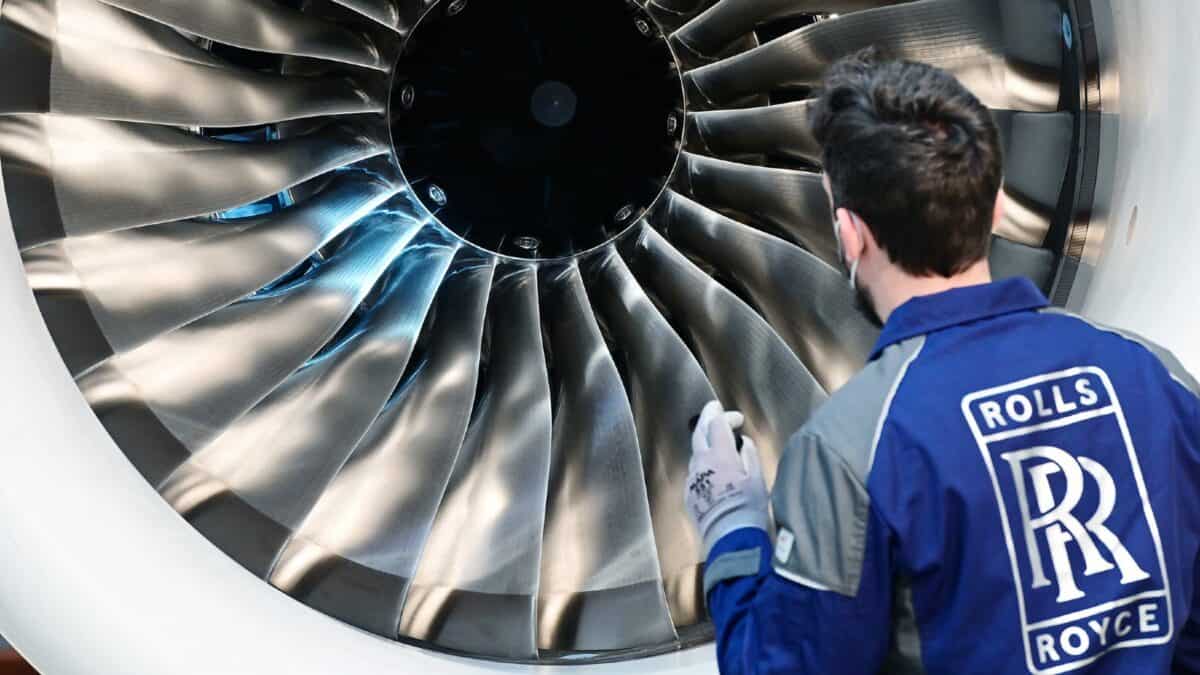Image source: Getty Images
BAE Systems (LSE: BA.) shares have soared an incredible 46% over the past year as the defence contractor benefitted from heightened geopolitical tensions and increased military spending globally. But after such a strong run, should investors continue to watch the BAE share price closely?
A solid year
A quick look at BAE’s recent fundamentals helps explain the impressive share price performance. In its latest results, the company reported revenue growth of 8.6% to £23.1bn and underlying earnings per share (EPS) up 10.2%. The order backlog grew to a record £69bn, providing incredibly strong multi-year visibility.
The company’s diverse business mix across defence domains like air, maritime, electronic systems, and intelligence services enabled it to capitalise on rising budgets from key customers like the UK, US, Saudi Arabia and others. The Ukraine conflict was a major catalyst, prompting NATO nations to ramp up defence outlays after years of underinvestment. Recent tensions and conflict in the middle east have heightened this.
The fundamentals
Looking at some key financial metrics, the business appears reasonably valued currently at a price-to-earnings (P/E) ratio around 16 times when compared to its five-year average of 16.5. The dividend yield of 3.3% is also fairly attractive, but slightly trailing the FTSE 100 index average of 3.5%.
While the valuation does appear slightly stretched, my key issue is whether the growth outlook can continue to boost the share price. Analysts forecast the company’s earnings growing at around 6.7% annually over the next few years. This is solid, but not spectacular, growth that may be largely priced in already given geopolitical risks remain elevated.
A lot will depend on whether NATO nations maintain heightened defence spending policies going forward as threats from Russia, China, Iran and others persist. Any shift back towards the prior ‘peace dividend’ mindset of cutting military budgets could quickly deflate the positive outlook.
The company also faces some near-term cost pressures and supply chain challenges that could squeeze margins over the next year or two. I suspect high interest rates are another potential headwind given the sizable debt load of around £5.3bn.
The future
On the positive side, BAE has a strong pipeline of large, multi-year programmes like the UK’s Dreadnought nuclear submarine and Eurofighter Typhoon combat aircraft. Its intelligence and cyber capabilities also position it well in areas like AI, autonomous systems, and cybersecurity that are top priorities for defence agencies.
So while the BAE Systems share price has seen a spectacular run of late, I don’t believe the growth is over just yet. With a strong order flow, reasonable valuation, and influence in secular growth areas, there’s a lot to like here, even if there is more potential for returns elsewhere. I’ll be adding it to my watchlist pending further research.
Credit: Source link













